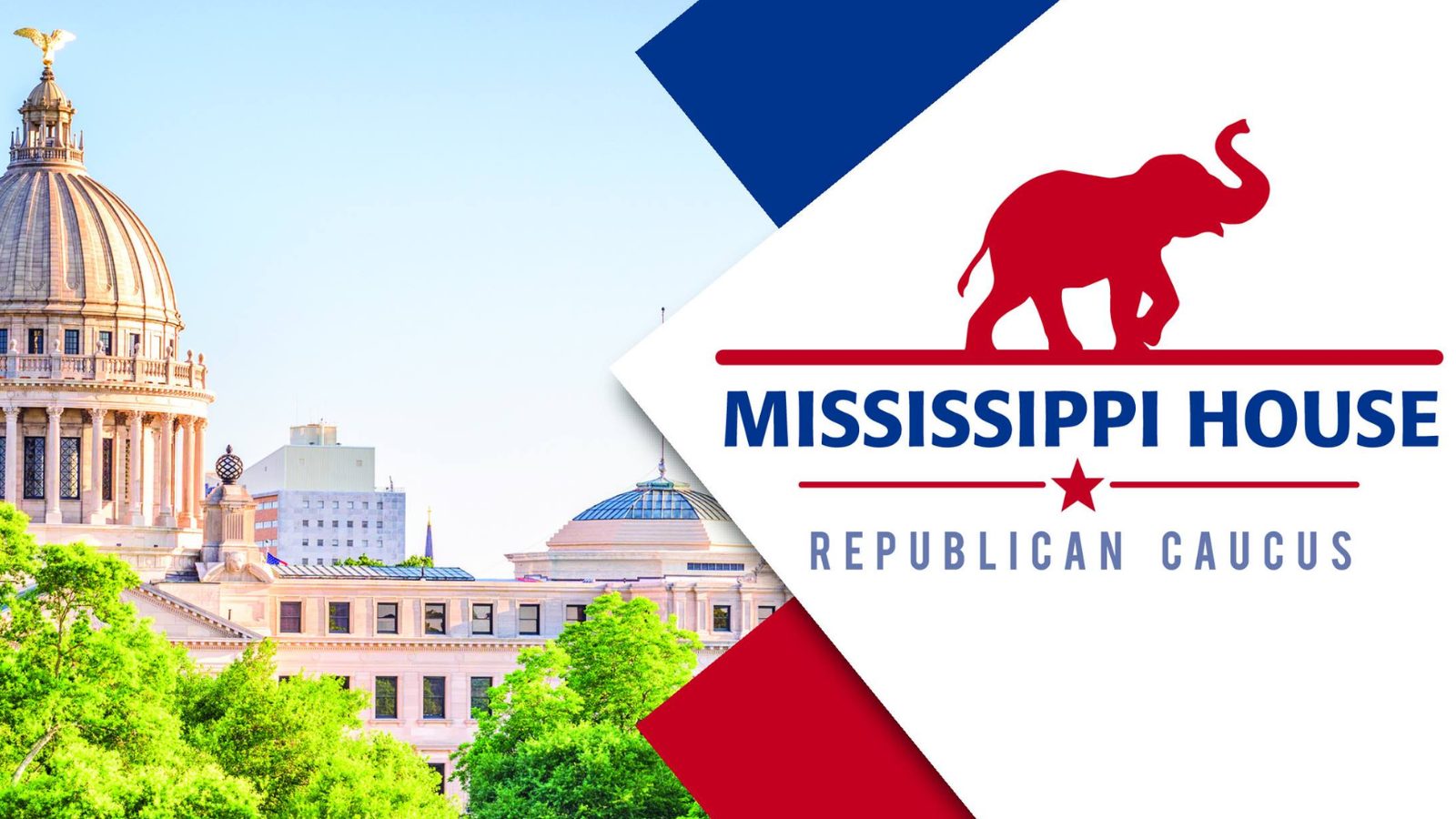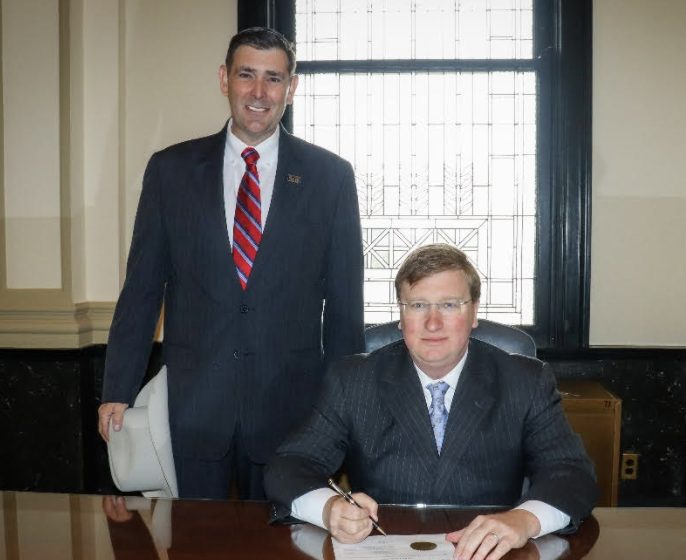
Caucus meetings are nothing new. Both political parties use them routinely. But the media’s objection to caucus meetings now is purely to hurt the GOP.
At least two of the state’s liberal media outlets – Mississippi Today and Mississippi Free Press – are feigning hysteria over Speaker Philip Gunn’s practice of using House Republican Caucus meetings as a means to vet legislation among the members of the GOP supermajority. They are doing so in a seemingly coordinated fashion as a contentious legislative session winds down.
This Tactic Has Been Tried Before – In Montana
In 1995, a group of 22 news outlets in Montana sued the state’s Republican Speaker of the House and other legislative leaders asserting that party caucuses should be open to the public in compliance with the state constitution and their Open Meetings Law.
Due to a Montana statute that required pre-legislative session meetings of party representatives to be held, the judge in the case ruled that any pre-session caucuses must be open to the public and press. However, since no statute existed for party caucus meetings while in session, the same judge ruled that those meetings could continue to be closed.
The latter part of the initial ruling was appealed by the media outlets and the Montana State Supreme Court reversed and remanded the lower court’s decision, which ultimately led to all party caucus meetings in the Montana Legislature being open to the public and press.
“Clearly, legislators gather at caucuses to discuss the public’s business,” District Judge Thomas Honzel wrote in 1998, according to the AP. “When they do so, the public has the right to observe their deliberations and to be informed about what happens at those meetings. The court concludes, therefore, that the party caucuses are public bodies” and subject to the Right to Know provisions of the Montana Constitution.
The Montana saga did not end there.
According to Yahoo News, just this year, the chairman of a legislative committee convened a meeting of a majority of the Republican members of his committee, but it was not a majority of the entire committee itself. Following a lawsuit by media outlets again, the Montana Supreme Court ruled that there was no violation of the state’s open meeting laws when he barred the media from attending.
And Now To Mississippi…
Unlike in Montana, there is no Mississippi statute that discusses the operation of political party caucus meetings in the Legislature, meaning any challenge to the practice of holding party caucus meetings will have to be made using the Open Meetings Act as a backdrop. That is exactly what is playing out.
Without a naming lawmaker on record, Mississippi Today wrote:
“Several House Republicans told Mississippi Today that Gunn sometimes uses the caucus meetings to strong-arm rank-and-file lawmakers into supporting bills he finds favorable. Many at the Capitol have questioned whether the meetings violate Mississippi’s Open Meetings Act.”
Hard to imagine a political leader using political influence to generate a political outcome, right?
The Mississippi Free Press further pounced, writing:
“Speaker Gunn’s denial of access to House Republican caucus meetings, and position that the gatherings of a majority of House members are not subject to the state’s Open Meetings Act — is part of a long-held strategy of keeping the deliberations of the House GOP outside the view of the press and the public.”
Democratic State Senator Sollie Norwood – a member of the state Senate, not the House – dutifully, and probably not coincidentally, filed an Ethics Commission opinion request asking whether the House Republican Caucus meetings violate the Open Meetings Act, or at least that is how Mississippi Today described it to their readers in an effort to maintain their narrative against Speaker Gunn.
But what Norwood actually asked is below:
I am writing to request an advisory opinion pertaining to standards of conduct for members of the legislator. Please issue guidance regarding the following terms.
Do legislators violate the Mississippi Open Meetings Act (Mis. Code. Ann. §§ 25-41-1 through 24-41-17) when a majority of members of either the House or Senate assemble in closed meeting without providing public notice to: (a) discuss the business of the body including legislation that will appear before the full chamber or (b) to take “straw polls” to determine whether to bring certain matters before the full body?
Is it lawful for a political caucus that represents a majority in a legislative chamber to exclude from its meetings any member of that chamber when business of the full body is discussed or decided during that caucus meeting?
The Law
While the coordinated media attack does not actually go over the line of claiming a legal violation, they flirt pretty close to it.
As for the law itself, much of which was enacted under Democratic legislative leadership over the years, there are clear exemptions to the Open Meetings Act for “Legislative subcommittees and legislative conference committees.”
It also defines a meeting as “an assemblage of members of a public body at which official acts may be taken upon a matter over which the public body has supervision, control, jurisdiction or advisory power…”
It is fairly easy to argue that the discussion of a bill or a policy in an unofficial capacity is a de facto exemption from that policy. Official discussions on policy are governed by chamber rules, which are done in committee and on the floor of the respective chamber.
Furthermore, if there were any other contention, the Open Meetings Act states that, “A public body may hold an executive [closed] session pursuant to this section for one or more of the following reasons,” and it lists, “Any body of the Legislature which is meeting on matters within the jurisdiction of that body.” The only caveats here, if that is where the issue lands, would be the public notice required and the 3/5 vote of all members to declare an executive session, a threshold the GOP currently exceeds.
Political party caucus meetings, specifically as it relates to a majority party which could constitute a quorum, are not specifically addressed, leaving much up for interpretation should the matter be taken up by the Ethics Commission and subsequently a court.
If these media outlets really believed what they are writing in the waning hours of a legislative session to exact a policy goal, they would take their millions in mega-rich donor and foundational money and file a lawsuit, allowing everyone to go to court and figure it out.
Why Are Media Elites Making An Issue Of This Now?

As to why this is an issue now for the media elites is not hard to figure out. It is because they are being paid and directed to engage in this manner by the mega rich and foundational policy organizations that drop millions of pre-tax money in these organizations making them appear to be nothing more than thinly veiled tax-deductible political contributions.
These latest attacks on Republicans in the Mississippi Legislature led by the liberal media are simply par for the course. Often times, these organizations are less than forthcoming about exactly how much money is coming from where and their allegiance is fickle.
Gunn was the media’s darling last summer when it was rumored that the Speaker would seek to challenge Governor Tate Reeves in 2023 because the media elites could use it to whipsaw Reeves more at the time.
Now that Gunn is seemingly more in line with Reeves from a policy perspective and is aggressively pushing conservative legislation, such as income tax elimination and anti-CRT bills while being unwilling to explore government expansion through Medicaid and other spending, the media has clearly moved its chess pieces toward Lt. Governor Delbert Hosemann, who is objectively more receptive to their causes.
In the Mississippi Senate, unlike when now Governor Reeves wielded the gavel in that chamber, Lt. Governor Hosemann does not hold Senate Republican Caucus meetings because, as Mississippi Today tells it, his “staff advised him the meetings could very likely violate the Open Meetings Act.” This better aligns with the prevailing and coordinated media narrative; hence Hosemann is used as an example of goodness.
Gunn Remembers McCoy
Speaker Gunn, however, does not agree, and is willing, at least for now, to challenge the notion that caucus meetings violate the Open Meetings Act. Perhaps it is because unlike Hosemann and his staff, Gunn lived through the Billy McCoy days in the Mississippi House of Representatives.
As a refresher, caucus meetings are not a new thing that began when Republicans gained the majority for the first time in 100 years just a decade ago in the Mississippi Legislature. Such party meetings have been held since the dawn of the republic, mostly to whip votes and keep unity among its members while allowing a space to dissent and discuss outside of the public view.
Democrats effectively used their caucus meetings under former Speaker of the House Billy McCoy, often threatening members if they stepped out of line or voted against the party’s stated interests. It was a routine occurrence under the former Mississippi Speaker that only got worse after McCoy narrowly maintained the gavel following the 2007 election.
Unsurprisingly, media outlets at the time had lockjaw with regards to McCoy’s tactics.
Even still, McCoy’s strong-arm tactics eventually turned off enough members, leading to a flood of party switchers which helped Republicans win the House majority four years later. Some were already on the fence even before the 2007 election cycle, feeling the heat at home given the changing political winds that favored the GOP.
Speaker Gunn was among the House Republicans who sought to “fire McCoy and the boys” at the time, in large part due to how McCoy ostracized not only Republicans but his own Democratic members when they stepped out of line.
What This Means Going Forward
Certainly, Y’all Politics is no stranger to public records fights. YP has been a huge proponent of public access to records and meetings. In fact, YP had to fight to even have space in the state Capitol against the objections from other media outlets.
Lt. Governor Hosemann made great strides to open up the legislative process when he streamed committee meetings online. That has resulted in more transparency, and that is a good thing.
But the current coordinated media attack over political party caucuses is a tempest in a teapot that is manufactured only to generate outrage, leverage, and clicks.
Should the Ethics Commission side with legislative Democrats and the liberal media and rule against party caucus meetings, and should the result be that the members hold smaller gatherings so as not to violate the ruling (such as what played out in Montana following their similar battle with the media), the dissenting voices in the House GOP will only grow and a wider division will be seen publicly rather than privately.
Such a result would be exactly what the media elites want to happen as it continues to be their goal to undermine, divide, and vilify Republicans – which is what this latest assault on the caucus meetings is all about.











